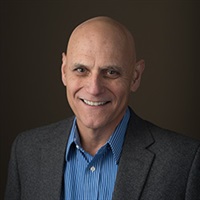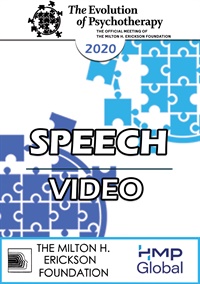EP20 Speech 14 - How Change Happens: What the World's Literature on the Mediators of Therapeutic Change Can Teach Us - Steven Hayes, PhD
- Average Rating:
- Not yet rated
- Topic Areas:
- Cognitive Behavior Therapy (CBT) | Speeches | Psychotherapy
- Categories:
- Evolution of Psychotherapy | Evolution of Psychotherapy 2020
- Faculty:
- Steven Hayes, PhD
- Course Levels:
- Master Degree or Higher in Health-Related Field
- Duration:
- 1 hour
- Format:
- Audio and Video
- Original Program Date:
- Dec 13, 2020
- License:
- Never Expires.
Description
Description:
Over the last four decades, evidence-based psychotherapy has been forced into a syndromal box. We have learned some useful things from the "protocols for syndromes" era, but most agree that the end result is inadequate and further progress has slowed to a crawl. Practitioners do not get what they need from research, treatment is difficult to individualize, and processes of change are poorly understood.
In this talk I will show why evidence-based treatment is moving rapidly toward a process-based therapy model, and will describe the profound impact that change is having clinically and methodologically. I will present the preliminary findings of a multi-year long attempt to review the mediational evidence for the entire world's literature on psychological intervention, conducted with my colleagues Stefan Hofmann (Boston University) and Joseph Ciarrochi (Australian Catholic University). Over 110,000 ratings later a picture is forming about what we now know about how change happens.
In this talk I will share the highlight from those data and integrate what we know into a single multi-dimensional multi-level extended evolutionary meta-model (EEMM). The EEMM suggests how a new form of functional analysis is within arms reach and how it can provide a diagnostic alternative to the DSM that has good conceptual and treatment utility. The implications of this approach for the future of our field will be explored.
Co-presenters: Stefan G. Hofmann and Joseph Ciarrochi.
Educational Objectives:
- Define a "mediator" in a controlled study of psychotherapy impact?
- List the six essential characteristics of a multi-dimensional multi-level extended evolutionary approach to therapeutic change.
- Describe at least one mediator of change in each of the six main psychological dimensions (affect, cognition, attention, self, motivation, overt behavior) and in the sociocultural and physiological levels?
*Sessions may be edited for content and to preserve confidentiality*
Credits
Handouts
| How Change Happens (25.6 MB) | Available after Purchase | ||
Faculty

Steven Hayes, PhD Related Seminars and Products
Steven C. Hayes, Ph.D Clinical Psychology, West Virginia University, Morgantown, is a Foundation Professor of Psychology at the University of Nevada. An author of 44 books and nearly 600 scientific articles, he is known for his work on Acceptance and Commitment Therapy, a widely used and researched method of psychological and behavioral intervention, and Relational Frame Theory, a comprehensive empirical research program on human language and cognition. Dr. Hayes has received the Lifetime Achievement Award from the Association for Behavioral and Cognitive Therapy, and is among the most cited psychologists in the word.


